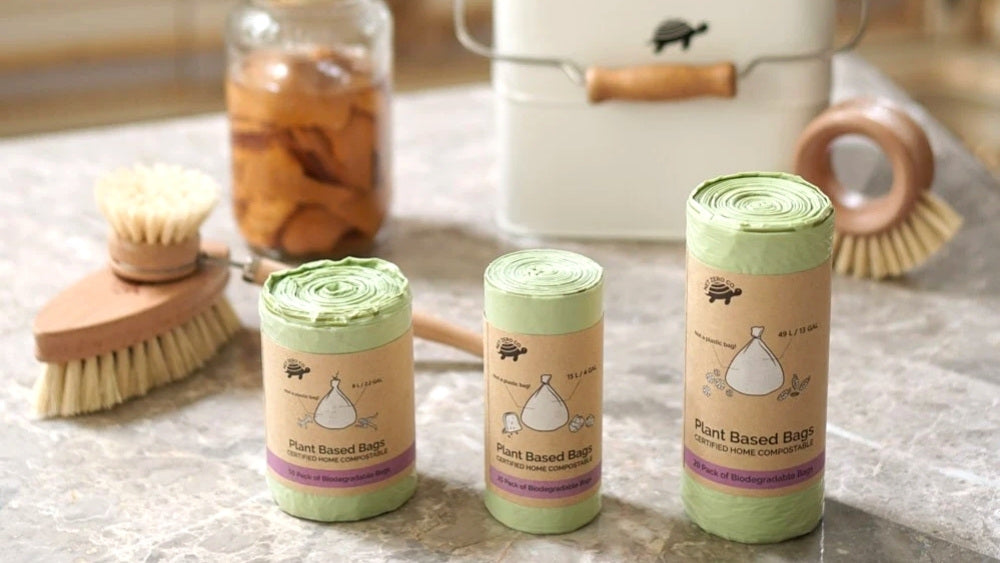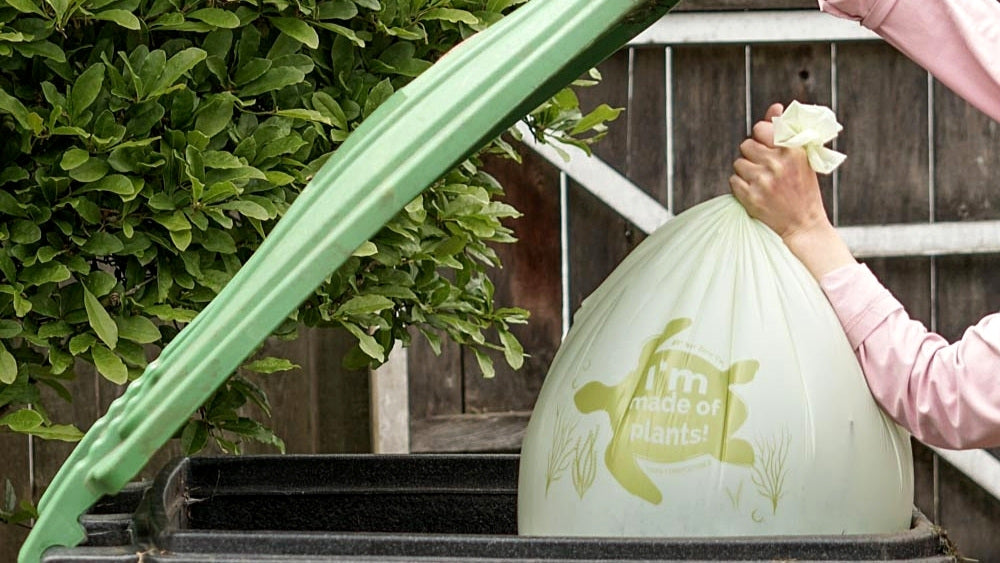
Guide to Choosing Biodegradable Bags
Biodegradable plastic is plastic which, unlike traditional plastic polymers, will break down over time. Such plastics are broken down through the agency of living organisms – usually bacteria. Bioplastics are often touted as a solution to the massive problem of plastic waste. Most plastics will not break down naturally in the environment – so they stick around and create a waste crisis that will last for generations to come.
Confusion arises, however, because there are two main different types of biodegradable plastic:
- Bio-plastics – plastics made from renewable raw materials, and
- Biodegradable synthetic polymers – plastics made from petrochemicals which contain biodegradable additives which enhance biodegradation.
Further confusion exists because many people confuse the terms 'biodegradable' and 'compostable'. A biodegradable material will break down, but only a compostable material will undergo a process that breaks a material down into compost, or humus. While a biodegradable plastic will break down, inorganic compounds may still remain. Fully compostable plastics, on the other hand, will break down without leaving inorganic residues in the environment.
Which type of bioplastic we are talking about makes a big difference when it comes to working out whether or not it is the most eco-friendly and sustainable choice.
The Best Biodegradable Bags:
Are Fully Compostable
Under the right conditions, certain bioplastics can be metabolised by micro-organisms entirely, reduced to just carbon dioxide and water (and are therefore compostable as well as biodegradable). Starch based bioplastics are a example of this. Such plastics, therefore, do not have the toll on the natural environment of traditional non-biodegradable plastic products.
Unfortunately, when synthetic polymers break down, they can leave inorganic compounds in the environment. True bio-plastics come with no such concerns. Fully compostable plastics can be integrated with organic materials in waste streams thereby significantly reducing the quantity of non-recoverable solid waste. But some biodegradable bags will end up in landfill, or make it more difficult for other plastics to be successfully recycled.
Use Fully Sustainable, Eco-Friendly, Natural Raw Materials
A true, green bio-plastic is one which comes from an entirely renewable agricultural source. Ideally, the crops grown as feedstock for its creation should be farming by-products, or utilize land that could not otherwise be used for sustainable food production. The land use, energy and water use of agriculture must of course be taken into account, but compostable bioplastics produced from truly sustainable and organic farming methods could be almost carbon neutral.
Synthetic plastics are made from non-renewable fossil fuels, which harms our natural environments and contributes to global warming.
It is worthwhile noting that while the best bio-plastics can be almost carbon neutral and will degrade completely in the right conditions, some other biodegradable plastics still release inorganic, damaging compounds into our environments. What is more, it is important to pay attention to the processes involved in creating a given biodegradable plastic, and the energy, land and water use that they involve before making your decision.
What To Do With Compostable Biodegradable Bags
Even the best bio-plastics can have their downside. When sent to landfill, even the best bioplastics can release methane – a potent greenhouse gas. Choosing plastic-free options, or disposing of these natural bioplastics through small-scale home composting systems is generally the best option.
So when shopping for biodegradable bags, make sure the bags you choose are truly home compostable. They should break down in a normal home composting system without releasing any inorganic or damaging compounds into the environment.
You'll also have to make sure that you have a good composting system in place. This is something anyone can do. Remember, you can have a small-scale composting system at home even if you don't have your own garden.
Choose home-compostable bags and you really will be doing people and planet a massive favour. But make sure you really are getting what you expect. “Compostable” not “biodegradable” is the word you should really be looking for when trying to make the greenest and most sustainable choice.
Revolutionize Your Laundry Routine: Unleash the Power of Eco-Friendly Clean with Our Innovative Laundry Strips!
Elevate your laundry game with our advanced laundry strips, designed for gentle yet effective cleaning. Our unique formula reduces wear and tear, preserving your favorite clothing for a longer-lasting, fresher look.

















